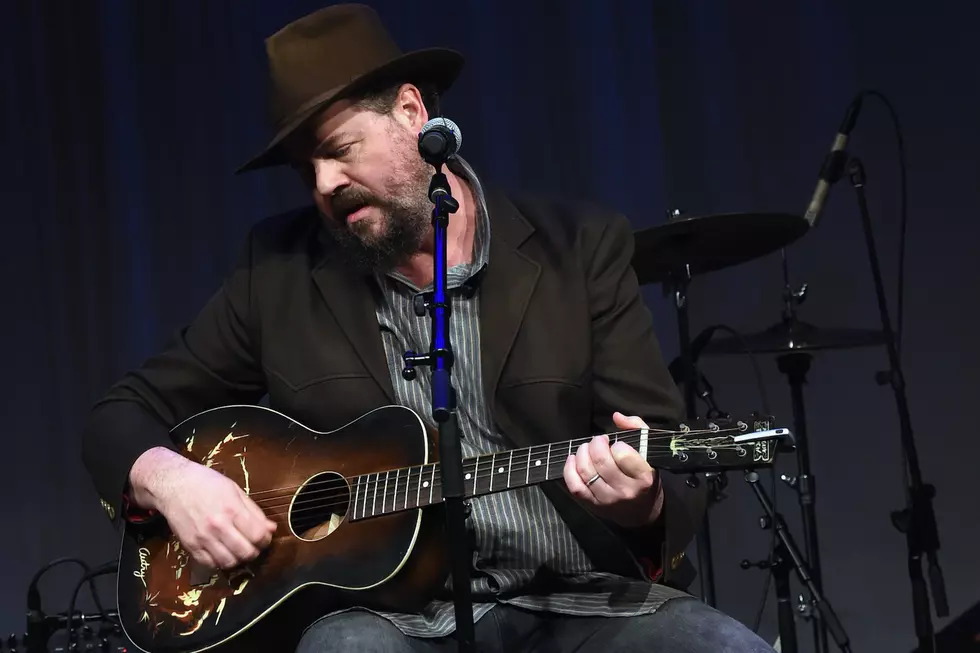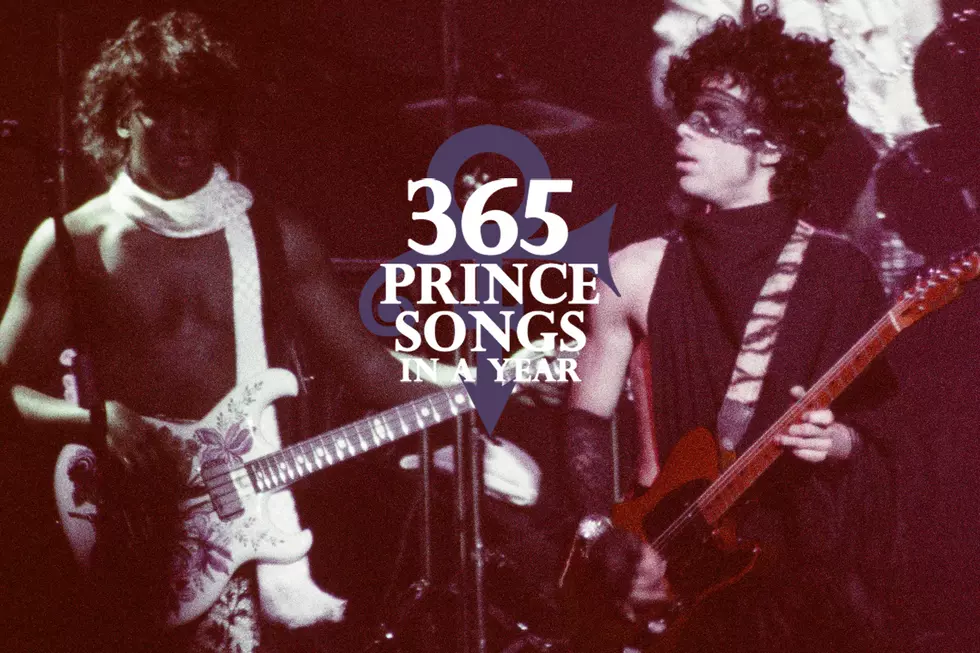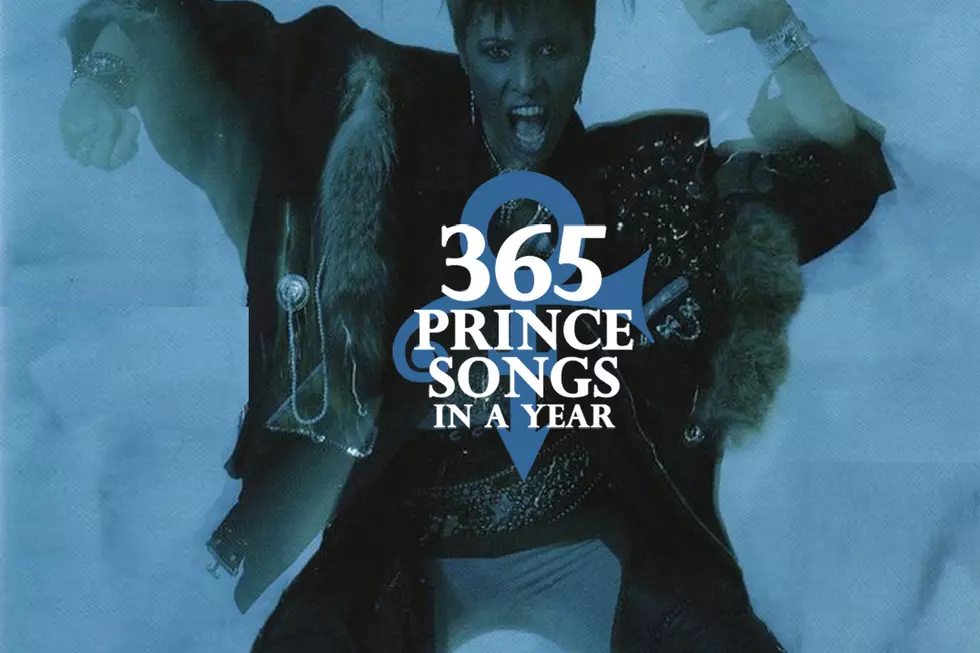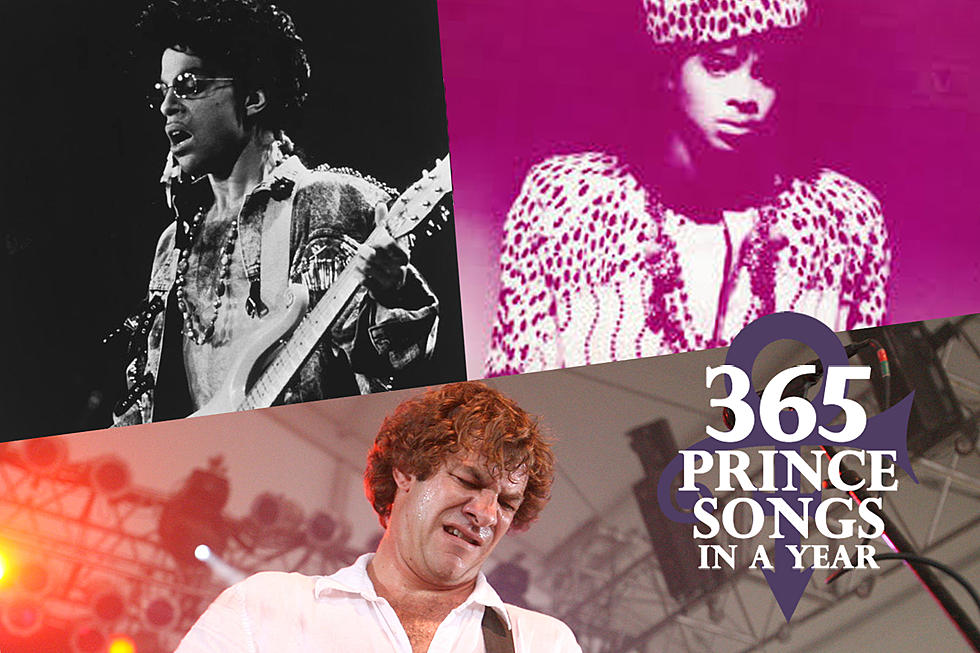
The Feelies’ Glenn Mercer Talks Old Photographs, Being on Hiatus and the Changes He Wants to See in the Music Industry: Exclusive Interview
Last year, New Jersey’s the Feelies marked their 40th anniversary together as a band -- and they gave fans a taste of new music with their richly layered and intense, lo-fi single “Been Replaced.” It’s a song that takes you to another time, and it’s supposed to do that.
Though it’s almost hard to believe it’s been that long, the Feelies’ Glenn Mercer, Bill Million, Dave Weckerman, Keith Clayton and Vinnie DeNunzio formed their new wave band back in 1976. The five-piece put out their debut album back in 1980 and subsequently released additional LPs throughout the rest of the decade, until 1991 when the group went on an almost-two decade hiatus. In 2011, Mercer and co. returned (with a slightly new lineup minus Clayton and DeNunzio, plus Brenda Sauter and Stan Demeski) with Here Before -- a record that blended the art of self-reflection featuring a more relaxed version of themselves.
Now, six years later, the band is back with In Between, an album that picks up where Here Before left off. There are still sharp, acoustic guitar numbers, but then the band decides to have a jam session on the ending title track. Alongside the release of the Feelies’ sixth studio album, we caught up with frontman Mercer about growing as a band, songwriting challenges and In Between.
It’s been six years since you guys put out Here Before. Can you tell me a little bit about how this record is different than your previous ones?
Well, we recorded it primarily at my house and another studio, which is a friend of ours, at his house. It was very low-key. We did it “off the clock,” so you’re not paying an hourly rate. So, the pressure level to record quickly is not a factor. It’s a lot more relaxed -- we took our time with it.
Do you think that making this record was fun for you again?
Making records was always fun until every record was done. It was hard work, but it’s rewarding when you accomplish something this hard. I don’t know if it’s easier or harder -- the fact that we did it at home. There was definitely less pressure, I would say.
Why did you decide to title it In Between?
We usually title the record from one of the songs on the record. It just seemed to have a ring to it and seemed to fit. Nothing too particular about it. The photograph kind of fit with the title. It just seemed to make sense.
On that note, tell me about the cover art. How did you choose the photo?
Well, I had asked my brother-in-law who’s a photographer to send a bunch of stuff. We were looking through the things he sent. He’d been photographing for so long that his archives are so extensive it would take years to go through them all. He sent the first batch and nothing jumped out at us, and the second batch and the same thing. I happened to walk past our refrigerator, which I passed every day walking through the kitchen, and it’s totally covered with all kind of stuff. One of them was the postcard that he had made from that photograph, which I was real familiar with, which [we ended up using]. For some reason it jumped out at me. I ran it by Bill -- he liked it, and I agreed.
Do you feel like you moved towards one genre rather than another on In Between?
No, I don’t put music into categories. Our first record was post-punk and became new wave. Then after that I was alternative. Alternative isn't a viable word anymore or considered a category. I don’t know what the category would be. I just look at the music.
Is there a theme to the record, or is each song its own anecdote?
I think there probably is a unifying theme, but that’s probably something that reveals itself after a while. It’s too soon to look at it through a lens. I think eventually a theme will emerge.
What was the most challenging song to write on In Between?
I don’t think any of them were a real challenge. If the song did become a challenge, we wouldn’t consider it something worth pursuing. That’s generally the way we work. If we have to work hard at something, you get more involved in the thought process and becomes a little too heavy on the craft side of it. There’s always an element of craft that balances with inspiration. If it goes too far into the element of craft, it becomes something you can hear as forced. I think we thought the electric version of “In Between” could be a challenge because the demo was eight minutes long. We wanted to have a long jam at the end, but it wasn’t something you could rehearse. So we rehearsed the first half, and then it took off. It’s always a gamble. We used to jam a lot when we played more often. Nowadays since Bill lives in Florida and Brenda lives in Pennsylvania, we have to be aware of schedule and the limited time we have together, so we don’t spend too much time jamming. It all really came together on the first take.
How has your relationship with your bandmates changed over the years?
I don’t know. We’re still friends. We’re pretty much the same. That’s kind of a complicated question. Your relationship with yourself changes, so it would be like analyzing relationships.
From 2011 until now, were you guys broken up or did you just take a break?
No. We first went on hiatus back in 1991 and came back together in 2008, so we’ve been playing pretty steadily since 2008. We don’t play very often, so every time we do get together and play a show, it’s huge in and of itself.
Which artists were you listening to when you made this record?
I wasn’t listening to anything: I was just spending a lot of time working on it. I didn’t have that much time to listen to stuff. It was probably a good two years making this record.
What do you think a future Feelies record would look like?
I have no idea. We really don’t look too far ahead. We just completed this one, so give it a few years. We’re trying to be in the moment.
You’ve been in the music industry a long time, what would you like to see change?
I would like for people to view it as being valuable enough to pay for it. A lot of people do, but a lot of people don’t. I feel like a lot of people think they get it for free so why pay for it? The argument that artists are overpaid is ridiculous. Some of them are, but a lot of them struggle, really.
By Ilana Kaplan
Top 40 Albums of 1986
More From Diffuser.fm









